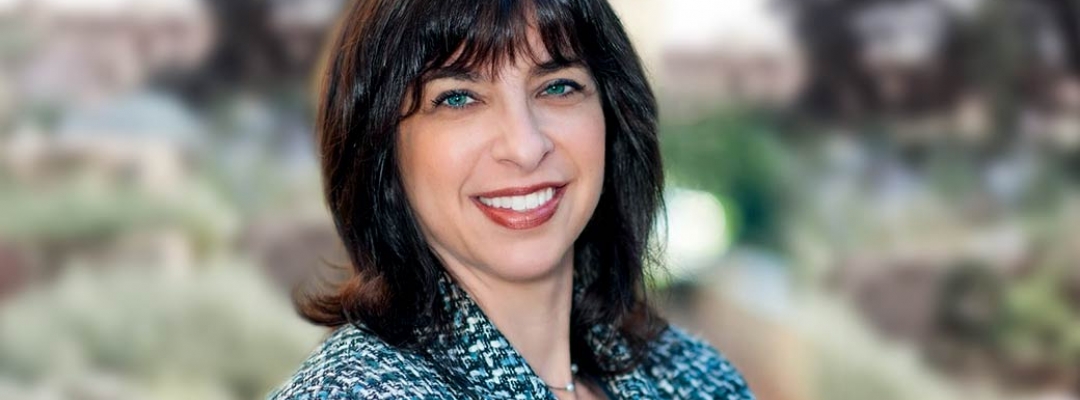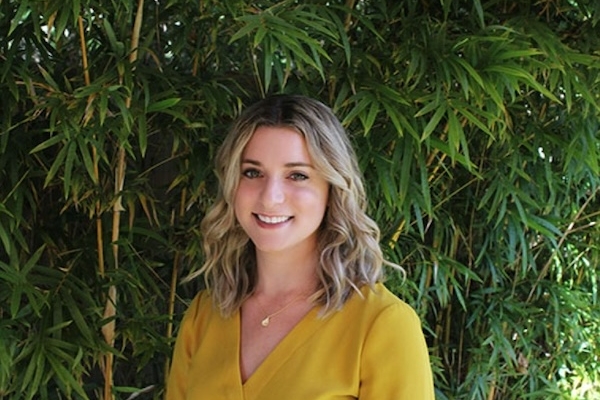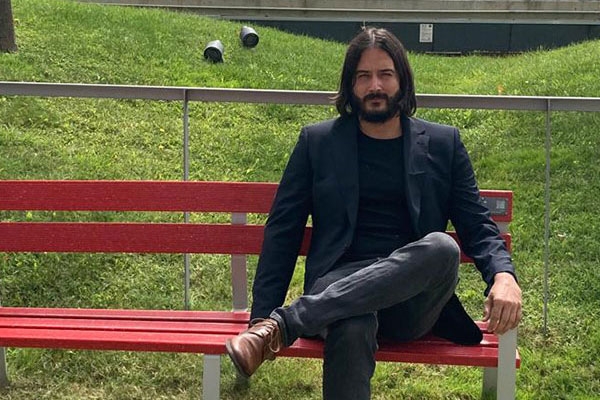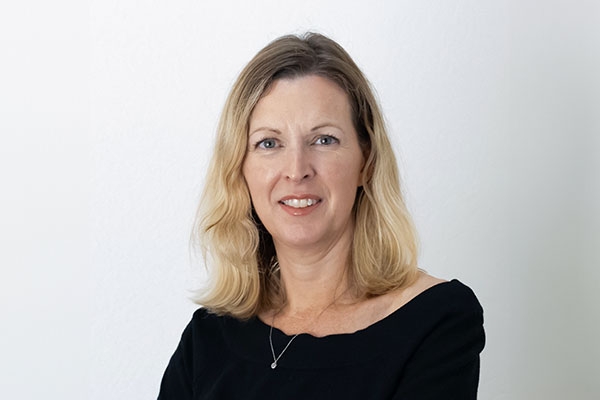When you enter 2018 Honored Instructor Helena Weiss-Duman’s Special Events Project Planning course, expect two things:
- You’ll be learning from a consummate professional with years of experience
- You’ll be actively engaged at each class session—so don’t plan on sitting in the back row!
Let’s tackle item number 1.
Helena comes from a long line of teachers—instructing is in her blood and fuels her passion for leading a classroom. She’s also a project manager at heart. “I took a career-assessment class and my top skills were organization, leadership and hospitality,” Helena recalls. “All of that pointed me to project management.”
Helena is also PMP-certified and utilizes all of her learnings on a daily basis as the UC Berkeley deputy director of External Relations & Marketing Communications. She explains her role and that of her 40 team members as managing and executing on events and communications to donors and alumni. Each event is a project, and as such Helena manages the scope statement, receives all of the requirements, determines the budget and procurement, and ensures efficient time management.
“I handle a lot of special projects,” Helena continues. “I project-managed the half-million-dollar Salesforce Marketing Cloud implementation across campus. Last semester, I worked on a nine-city cross-country tour with the Chancellor—the Berkeley 150 Roadshow—to meet with donors and alumni. Our team did the Berkeley 150 Campaign, which was really cool to work with our partners—campus, alumni, academics, student services. We had to determine how to manage and engage these partners.”
There’s more interest in project management because there is a greater recognition that it’s a helpful methodology.
And it is the experience of each of these event projects—the successes and pitfalls—that Helena brings to the classroom. “The thing that students love is hearing my horror stories and mistakes,” Helena says with a laugh. “They love hearing about cautionary tales. I teach them how to do scope statements and provide examples from my work: ‘Here’s an example of a RACI chart, an example of a budget.’”
Teaching for more than a decade at UC Berkeley Extension, she has seen a broader acceptance of project management across industries, which brings a varied mix of students to her classroom.
“There’s more interest in project management because there is a greater recognition that it’s a helpful methodology,” Helena opines. “More industries are recognizing that the integration piece needs to happen. And that integration piece is not necessarily a manager. They’re starting to understand the difference between management and project management.
“Project management is everywhere,” she continues. “Ever since my Special Events Project Planning class has been an elective in the marketing certificate, I’ve gotten a lot more customer-related students. I was surprised to have a plastic surgeon from Asia who wanted to do customer open houses.”
And with this influx of new students hailing from various industries, Helena is continually adapting the curriculum. For example, when she first began teaching this course, Helena used a PowerPoint slide deck; now, she incorporates more experiential learning into each session.
I see myself as a facilitator guiding the conversations.
Which leads me to item number 2: You’ll be actively engaged at each class.
Ever since reading Daniel Pink’s Drive: The Surprising Truth About What Motivates Us, Helena has structured her class to incorporate the principles surrounding intrinsic motivation:
Autonomy: “People are self-directed, so I have my students find their own articles or case studies to read and they have to assess that article.”
Mastery: “The material is not too hard, but it’s not too easy. Students design their own project based on where they are.”
Purpose: “It has to be relevant to them. That’s why my class is very self-directed.”
“I have students do a lot of teaching, because the best way to learn is to teach,” Helena explains. “So every week, they do their research on an article and present it in small groups. A lot less of me, a lot more of experiential learning and teaching each other. I see myself as a facilitator guiding the conversations.”
And while the students are learning from each other, Helena is also gleaming new nuggets of information to incorporate into her work. “I love to hear about other industries,” she says. “Students are constantly sharing their stories because there are some people who come from more formal settings and some who come from scrappy startups. It’s fun to hear about experiences and initiatives.”
And the third thing you should know: Helena has a heart of gold.
The daughter of a Holocaust refugee, philanthropy and empathy run deep in her veins. Helena is part of a special group who help refugees find stability in their transition to living in the United States. This could be helping the refugee with mentoring, securing a job, renting an apartment, placing their children in school.
“Tutoring is really important,” Helena explains. “We have people who go to the refugee’s house and teach them English. Because they either don’t speak English or it’s their second language, it’s really hard for them to communicate and understand what a lease is, how our school system works. We help them find affordable housing; remember, they don’t have credit.
“This past Fourth of July, we had a bunch of families come to our home for a BBQ and it was amazing.”
And we think you’re pretty amazing, Helena.



